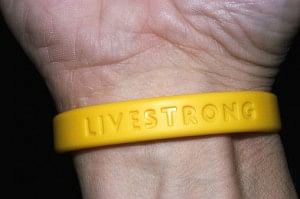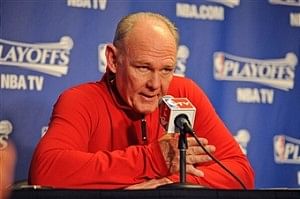
The good, bad and the ugly: 3 stories about cancer survivors in sports
Cancer. The disease carries with it a stigma. Two fold stigma. One, those who have it are looked at with pity, two they are seen as getting preferential treatment. The sympathy factor. It’s like being handicapped. Knowing that on one hand you need to prove to the world that your disease doesn’t stop you from overcoming odds, and on the other hand the more you overcome those odds, the more some people will attribute your success to the fact that your disease is what gets you sympathy and lets you become better.
Here’s a look at 3 cancer survivors in three different contexts in sports. In one case, the athlete attributed his comeback to his love for the game. In the second case, the athlete is seen to have benefited from the good reputation coming from surviving cancer. The third case is how even today sometimes we can be insensitive towards this disease.
The Good
Our own Yuvi is a cancer surviver. They say that when God gives, he gives with both hands and ditto for when he takes. Sometimes both highs and lows go hand in hand. Yuvraj Singh was the player of the tournament when he won the 2011 Cricket World Cup, and soon after he found out that he has a cancerous tumour between his lungs. Yuvraj found inspiration in reading Lance Armstrong‘s autobiography, It’s not about the Bike. Both Yuvraj and Lance have been treated by the same doctor. And both have beaten the disease down.
When Yuvraj was undergoing treatment, Lance Armstrong sent out a message of support:
“Hi Yuvi, I am Lance Armstrong and welcome home. Man you have got one big following, I have heard about you every hour of every day since you have been diagnosed. We are pulling for you, so glad you are healthy now. Have a great life, don’t look back, live strong buddy,”
“Finally the hair has gone, But #livstrong #yuvstrong.”.- Yuvi said.
“Having experienced cancer personally, I can totally empathise with the pain and difficulties faced by a cancer patient and thus we have launched ‘YouWeCan’. I feel extremely passionate and motivated about using this platform to appeal to everyone, to come forward for early detection, as I have myself benefited from it and it is key to saving your life from Cancer.”
“By nature, sportsmen are competitive. They have the will to fight and face the ups and downs in a spirited manner. Being a sportsman I remained positive. I will give a lot of credit to my mother and friends. I never allowed the negativity of cancer to depress me. To play cricket again was paramount for me.”
The drive of a sportsman was what drove Yuvraj to punch cancer in the nose and choose to live strong instead of succumbing to it. His is a heartwarming story of triumph of the human spirit and of the sportsman’s never say die attitude. Looking forward to seeing him smash sixes soon.
The bad
Lance Armstrong has always been followed. His competitors typically end up following him. Aspiring endurance athletes follow him. Noone really catches up. The allegations about doping have caught up to him though. He has been plagued by them since his comeback from cancer.
And now he doesn’t want to ride anymore.
It seems that the decision he made to stop fighting to keep his name clear is a form of retreat, or maybe he’s realized that the ‘witch hunt’ will continue irrespective of whatever he does to try and avoid being burned at the stake.
The USDA has accused Lance of using banned substances, including the blood-booster EPO and steroids, as well as blood transfusions, since 1996.
Lance Armstrong’s autobiography, Its not about the Bike: My journey back to life, makes for a fascinating read. The words of a man who has pushed his body through the wall, above the threshold of pain, and beyond the perceived limits of the human body, is one of the more inspiring works you can lay your hands on.
There are a lot of poignant moments where Lance describes pushing himself to the limits placed on him by his team, and the epiphanies he gets on crossing those plateaus. It lets you know about the trials and tribulations he faced while growing up in a single parent household. Lance was brought up by his mother and the Armstrong family was not well off. Cycling became more than an outlet for Lance to find himself, he made it an obsession to get better.
Reading his words makes you realize that this is a man who faced down the gnarly odds facing him and fought strong with an unconventional mindset.
Whichever side of the fence you may be on Lance’s issue of doping, its unanimous that he has done wonders for the cancer community. A disease that’s supposed to bring you down to your knees, he kneed it and made a statement that cancer can be just another obstacle. Even his detractors who wholeheartedly believe that he cheated to win those Tour De France titles acknowledge the good he has done.
Armstrong’s Livestrong campaign has so far collected nearly $500-million for cancer research and helping people cope with the disease. The only bad part here being that he chose to give up fighting to clear his name.
The ugly
Coach George Karl of the Denver Nuggets had to leave his team after the 2010 All Star game, because of a neck and throat cancer. His team went on to lose in the playoffs that season but coach Karl returned and has been an active coach since then for the Nuggets. He carried on well after the disease. But an ugly incident happened with other players.
Charlie Villanueva has alopecia universalis, a disease which causes him to go bald and lose his eyebrows. When people get treated for cancer, hair loss is one of the side effects of chemotherapy.
Kevin Garnett, noted trash talker, when he went up against Charlie once, called him a cancer.
Charlie Villanueva tweeted in reply, “KG called me a cancer patient, I’m (angry) because, u know how many people died from cancer, and he’s tossing it like it’s a joke.” According to Garnett, he actually meant: “You are cancerous to your team and our league.”
“Yeah, I heard his response, but I stick to what I said, though”, Villanueva said.
Coach George Karl had something insightful to say on that: “Sometimes, responsibility comes from knowing when to argue when not to — when to cross the line and when not to cross the line. So philosophically, if Kevin and I were close friends, I’d probably call him up and say, ‘I don’t think that’s right [what you said].’ But I also believe that competition makes us do things when we don’t have our total mental morality in line. We act like children at times, even coaches.”
He’s right. We do act like children sometimes. And a dangerous disease like cancer polarizes people, dividing opinion into good or bad with little middle ground. Yuvraj Singh is firmly on the good side. Kevin Garnett took the issue to the wrong side. And Lance Armstrong is on that tightrope between good and bad right now, teetering on bad and in danger of falling into ugly. It remains to be seen if one of the most inspiring cancer survivor stories can be tainted.


